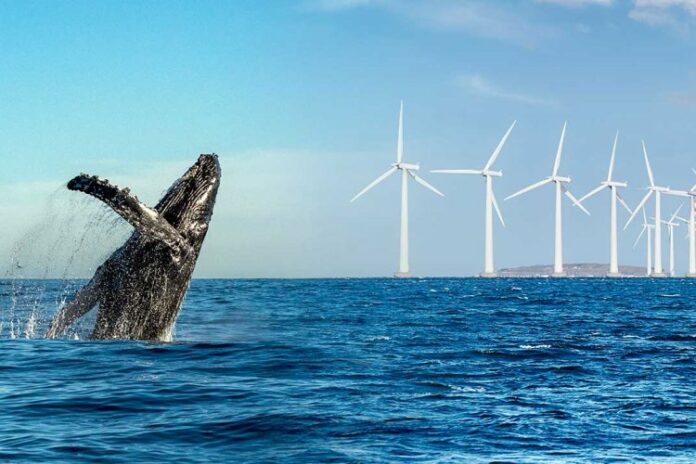The Bureau of Ocean Energy Management (BOEM) and the National Oceanic and Atmospheric Administration (NOAA) Fisheries have released a final joint strategy to protect and promote the recovery of endangered North Atlantic right whales while responsibly developing offshore wind energy.
The strategy identifies the agencies’ goals and key actions for continuing to evaluate and mitigate the potential effects of offshore wind energy development on North Atlantic right whales and their habitat. It also builds on existing mitigation measures to protect North Atlantic right whales from the potential impacts of offshore wind development.
BOEM and NOAA Fisheries incorporated the best available scientific information and Tribal and public feedback in the strategy. The draft strategy was developed to support the Biden-Harris administration’s goal of deploying 30 gigawatts of offshore wind by 2030.
“Right whales are endangered and climate change is impacting every aspect of their survival – from changing ocean habitat, prey availability and affecting migratory patterns – making the transition to cleaner, renewable energy critically important,” said NOAA Fisheries Assistant Administrator Janet Coit. “Working together on this strategy leverages the best available scientific information to inform offshore wind management decisions while conserving and recovering the species.”
The North Atlantic Right Whale and Offshore Wind Strategy provides guidance for a coordinated effort across the federal government and with agency partners to protect and promote the recovery of North Atlantic right whales and other marine life while responsibly developing offshore wind energy to address the climate crisis.
The final strategy identifies several actions under three main goals:
- mitigation and decision-support tools,
- research and monitoring, and
- collaboration, communication, and outreach.
These goals and actions will allow continued, coordinated, and efficient collaborations between BOEM, NOAA Fisheries and our partners; collection and application of the best available scientific information and data insights to inform future decisions, including monitoring and mitigation programs; and implementation of effective measures to reduce risk and avoid and minimize impacts to North Atlantic right whales.
Immediate impact mitigation efforts include avoiding leasing in areas that may impact potential North Atlantic right whale habitat and high use areas and providing guidance to developers on conducting robust sound field verification to ensure that noise levels expected from offshore wind activities do not exceed thresholds set for certain activities. The agencies invite industry and other partners to join in the implementation of this strategy, which will be evaluated and updated as new information becomes available.



